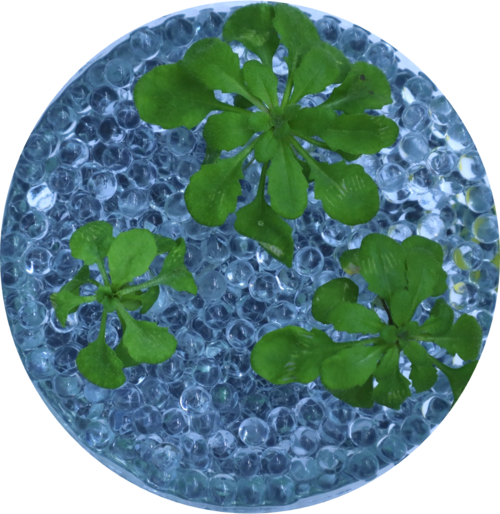Project members
Charlotte Joller
Abstract
Plants under pathogen attack adjust the composition of their microbiome and thereby, enrich for beneficial strains with protective functions. However, it is currently unclear how plants modulate their microbial communities. Metabolites exported from roots are nutrients and signalling compounds to the microbial community. We hypothesize that altering the exudation of specific compounds presents the mechanistic link between microbe recognition and changes in the composition of plant-associated microbial communities. The objective of this project is to understand how plants alter exudation under pathogen attack, resulting in a modulated root microbiome. To accomplish this, we employ a reductionistic approach by growing Arabidopsis thaliana in sterile microcosm systems, by simulating pathogen attack by the application of elicitors, and studying the effects on a synthetic bacterial community. We first establish an experimental setup permitting paralleled metabolic and microbial analyses, then we identify candidate metabolites changing in response to immune stimulation, validate their effects on microbes and finally, we reassess the relevance of these key exudate compounds under natural conditions. With this project, we will make a step towards understanding the mechanistic link between a plant host and its microbiome during pathogen attack. The identification of such key exudate metabolites will permit future breeding towards cultivars with ‘disease-protective microbiomes’ as sustainable solution to control pathogen burden.
Quick Links
Social Media

